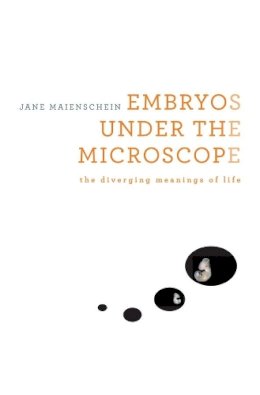
Stock image for illustration purposes only - book cover, edition or condition may vary.
Embryos under the Microscope: The Diverging Meanings of Life
Jane Maienschein
€ 59.14
FREE Delivery in Ireland
Description for Embryos under the Microscope: The Diverging Meanings of Life
Hardback. Jane Maienschein examines how understanding of embryos evolved from the speculations of natural philosophers to bioengineering, with its life-enhancing therapies. She shows that research on embryos has always seemed promising to some but frightening to others, and makes the case that public understanding must be informed by scientific findings. Num Pages: 328 pages, Illustrations (black and white). BIC Classification: MFKC3; PDA; PDX; PSC. Category: (P) Professional & Vocational; (UP) Postgraduate, Research & Scholarly. Dimension: 150 x 209 x 29. Weight in Grams: 508.
Read more
Too tiny to see with the naked eye, the human embryo was just a hypothesis until the microscope made observation of embryonic development possible. This changed forever our view of the minuscule cluster of cells that looms large in questions about the meaning of life. Embryos under the Microscope examines how our scientific understanding of the embryo has...
Product Details
Publisher
Harvard University Press
Format
Hardback
Publication date
2014
Condition
New
Weight
508g
Number of Pages
352
Place of Publication
Cambridge, Mass, United States
ISBN
9780674725553
SKU
V9780674725553
Shipping Time
Usually ships in 7 to 11 working days
Ref
99-1
About Jane Maienschein
Jane Maienschein is Regents' Professor, President's Professor, and Parents Association Professor at the School of Life Sciences and Director of the Center for Biology and Society at Arizona State University. She is also Adjunct Scientist at the Marine Biological Laboratory in Woods Hole, Massachusetts.
Reviews for Embryos under the Microscope: The Diverging Meanings of Life
A balanced combination of history and science. We track the thoughts of philosophers Aristotle and Descartes; follow the development of modern experimental embryology by scientists such as Frank Lillie; and examine the twentieth- and twenty-first-century focus on understanding the molecular and genetic contribution of the sperm, egg and embryo to the offspring. Through this, Maienschein…interweaves the science of embryology and...
Read more